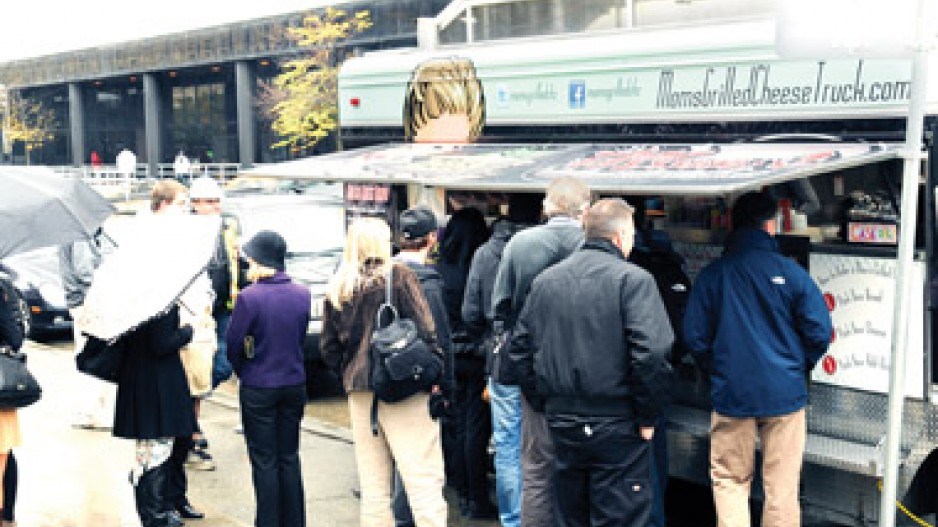Sixteen restaurant owners have signed an October 19 letter to Mayor Gregor Robertson complaining that the city's food cart program is causing them "significant revenue losses" and that vendors regularly sell food right outside restaurants.
To make matters worse for the restaurateurs, the city's food vendor program is set to expand to 133 by 2014 from the current 103.
Romano's Pizza owner Kenan Gov, who started the letter campaign, complains that food vendors routinely break permit requirements.
He accuses a hotdog vendor of unlawfully operating until 4:30 a.m. on weekends and of moving his cart several times during a night.
"Basically, he uses downtown Vancouver in any way he wants with no limitations," Gov wrote in a letter to Robertson dated one day before he sent the group letter.
Gov said his overall sales have stalled since mid-2010, when the city first expanded its food vendor program and introduced a wider range of foods available from food carts.
He showed Business in Vancouver documents to prove that the hotdog vendor, who he says operates in front of Gov's quick-service pizza restaurant at 902 Granville Street, had his licence suspended for two weeks in November 2011 for permit infractions.
The problem, Gov said, is that the city scarcely monitors food vendor activity and doesn't ensure that vendors adhere to licence requirements.
Not true, said Scott Edwards, who is the city's manager of street activities.
Edwards agreed that most enforcement is complaint-driven, but he told BIV that the city has a shared team of investigators who occasionally examine permits and watch to ensure that food vendors are not dispensing food at 4:30 a.m., as Gov claims.
Edwards added that the city requires food carts be at least 60 metres from a restaurant that has similar menu items.
"We're quite clear that the menu can't compete directly with bricks-and-mortar businesses that are close by," Edwards said.
But that's not good enough for entrepreneurs such as Brooke Bestwick, who owns a PitaPit franchise on the Granville strip.
She wants the city to require that food vendors be 60 metres from any quick-service restaurant option.
"Why should they be allowed to be on a street that already has 100 different food options?" she asked. "I'm competing against a donair or a falafel or pizza, too, because those foods are cheaper."
Bestwick added that she and neighbouring businesses pay as much as $9,000 each month in lease payments to operate on the busy strip. They then pay approximately $830 in patio, business and garbage collection fees.
Food vendors, on the other hand, have only to pay for maintenance on their vehicle and a $1,179 annual city permit fee.
"A lot of these food trucks just take cash, so how do we know that they are paying the [provincial and federal] tax dollars that we are?" Bestwick asked. "We offer credit and debit [to ensure that all sales are recorded]." •




